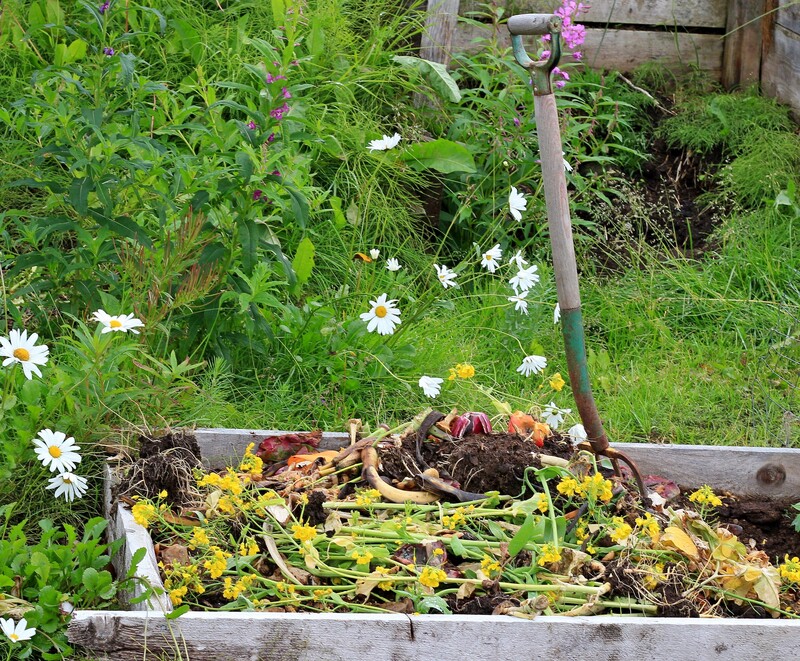Maximize Recycling Efficiency with These Home-Based Strategies
Are you looking to make your recycling routine more effective and eco-friendly? Efficient home recycling not only reduces waste but also conserves resources and supports a greener planet. In this comprehensive guide, discover top strategies and tips to maximize recycling efficiency from the comfort of your home. Whether you're a recycling novice or seeking to optimize your current habits, these actionable methods will help you create an impactful recycling system that's both easy and sustainable.

Why Boosting Home Recycling Efficiency Matters
Recycling at home is one of the simplest yet most powerful ways individuals can help the environment. According to the Environmental Protection Agency (EPA), proper recycling reduces the amount of waste sent to landfills, conserves natural resources, and lessens pollution. However, improper sorting and contamination are common pitfalls that hamper the recycling process. By adopting home-based strategies to maximize recycling efficiency, you make your environmental impact more meaningful.
Key Benefits of Efficient Home Recycling
- Reduces overall waste and the burden on landfills
- Conserves natural resources such as timber, water, and minerals
- Minimizes energy consumption in manufacturing and transportation
- Mitigates pollution from waste and raw material extraction
- Fosters a sustainable mindset for future generations
1. Understand Local Recycling Guidelines
Every city or region has unique recycling rules, and understanding them is the foundation for maximizing your home recycling efficiency. Misplaced items can contaminate batches of recyclables and cause more harm than good. Start by:
- Contacting your local waste management agency for a list of accepted materials and special instructions
- Downloading their official recycling guide or app for easy reference
- Staying updated on any changes in accepted items--many programs evolve over time
Tip: Print your local recycling guide and hang it near your bins for quick reminders.
2. Set Up an Optimized Home Recycling System
Having a well-organized set-up makes recycling second nature. Efficient home recycling starts with the right bins and clear labeling to prevent mistakes and save time.
Steps to Create a Recycling-Friendly Station
- Designate a central recycling area: Place your primary bins in a high-traffic spot near the kitchen, as it's where most recyclables originate.
- Use multiple containers: Separate bins for paper, plastics, glass, and metals increase recycling efficiency by minimizing sorting later.
- Clear labeling: Use big, bold labels to indicate what belongs in each bin. Consider using images or color-coded signs for added clarity.
- Make it accessible and visible: Bins that are easy to access mean no excuses for tossing recyclables in the trash instead.
Tip: Include a bin for non-recyclable landfill waste to prevent contamination of recyclables.
3. Clean and Prep Your Recyclables
Rinsing and cleaning recyclables is crucial to maximize recycling efficiency. Dirty containers and food residue can ruin entire batches and send them to landfill instead of reprocessing. Here's how to do it right:
- Empty and rinse containers: Give jars, cans, and bottles a quick rinse. No need for soap; a simple water rinse helps remove most residue.
- Remove lids and caps: Different materials can disrupt the recycling process, so remove plastic lids from glass jars, or metal tops from plastic bottles.
- Flatten boxes: Breaking down cardboard and paperboard saves space and helps recycling trucks fit more material per trip.
Remember: Small actions like these can dramatically increase your recycling efficiency at home and help ensure more materials are successfully reclaimed.
4. Stay Informed on What Can (and Can't) Be Recycled
Contamination is the top reason home recycling doesn't live up to its potential. To maximize recycling efficiency, regularly update your knowledge of what's allowed in your local program.
Common Items That Are NOT Recyclable Curbside
- Plastic bags and film wrapping (recycle at designated store drop-offs instead)
- Styrofoam containers
- Greasy pizza boxes
- Ceramics, drinking glasses, and mirrors
- Batteries and electronics (take to hazardous waste collection events)
- Certain types of shredded paper
When in doubt, leave it out! Placing the wrong items in your bin can lead to entire batches being rejected by recyclers.
5. Upcycle and Repurpose Before Recycling
Before tossing items in the recycling, consider upcycling or repurposing them at home. This extends the life of materials and reduces the energy required for new products.
- Glass jars and containers: Use for food storage, organizing small household items, or as decorative vases.
- Cardboard boxes: Great for closet organizers, kids' art projects, or as shipping material for mailing goods.
- Old t-shirts and towels: Cut into rags for cleaning instead of buying single-use paper towels.
Get creative--upcycling not only reduces waste further but also saves money and resources!
6. Compost Organic Waste
Did you know food scraps and yard waste comprise more than 28% of household waste?
Composting is a form of recycling that transforms organic waste into nutrient-rich soil for gardening and landscaping.
How to Start Composting at Home
- Designate a compost bin: Whether a small kitchen caddy or a larger outdoor pile, find a solution that fits your living space.
- Add the right materials: Compost fruit and vegetable peels, coffee grounds, eggshells, grass clippings, and shredded newspaper.
- Avoid: Meat, dairy, and oily foods, which attract pests and don't break down well.
- Turn your compost: Aerate regularly for faster decomposition.
By composting, you not only reduce waste but also return nutrients back to the earth--closing the loop in the recycling process.
7. Reduce Single-Use Packaging and Waste
The best recycling strategy is to reduce the need to recycle in the first place. Every time you avoid buying single-use products or excessive packaging, you decrease the overall burden on recycling systems.
Smart Habits for Waste Reduction
- Buy in bulk: Reduces packaging waste and saves money.
- Choose reusable bags, containers, and bottles: Replace disposables with durable options.
- Opt for products with minimal or recyclable packaging: Read labels and support eco-conscious brands.
- Say no to unnecessary flyers and junk mail: Opt-out of mailings and go digital where possible.
Adopting a reduce-first mentality directly boosts household recycling efficiency and lowers overall waste output.
8. Educate and Involve the Entire Household
To truly maximize home-based recycling efficiency, make it a family or house-wide effort. The more people who are onboard--and understand how to recycle properly--the greater your impact.
- Hold a recycling "boot camp": Teach household members (including kids) the dos and don'ts.
- Make recycling fun: Create games or rewards for correct sorting or lowest landfill waste.
- Share success stories: Celebrate improvements or milestones to keep motivation high.
- Display progress charts: Use checklists or calendars to track achievements.
Recycling is most effective when everyone understands and participates.
9. Avoid "Wishcycling"
Wishcycling is placing non-recyclable items into recycling bins "hoping" they'll be processed. This habit, while well-intentioned, actually causes contamination and can lead to more waste ending up in landfills.
- Double-check questionable items: Unsure if something is accepted? Refer to your local program or look up guides online.
- Keep plastic films, coated paper, or mixed materials out of the bin.
By being mindful and avoiding wishcycling, you ensure your efforts contribute to genuine recycling efficiency.
10. Recycle Beyond the Curb: Electronics, Batteries, and Special Items
Many everyday household items cannot be handled by standard residential recycling programs but can still be kept out of landfills.
Special Recycling Initiatives
- Take electronics, batteries, and fluorescent bulbs to designated drop-off events or local hardware stores.
- Participate in textile recycling programs for old clothing and linens.
- Look into mail-in recycling for ink cartridges, cellphones, and small tech gadgets.
- Recycle plastic bags and wraps at grocery store bins.
These additional efforts expand the impact of your home recycling system and keep hazardous materials out of the environment.

Maximize Your Recycling Results with Continuous Improvement
Maximizing recycling efficiency at home isn't a one-time effort--it's an ongoing process. As products and local rules change, periodically review your methods and keep learning.
- Evaluate your waste output monthly and adjust your recycling set-up as needed.
- Host regular family "check-ins" to reinforce best practices.
- Research new recycling initiatives or sustainable products on the market.
When you keep refining your approach, you'll consistently minimize waste, conserve resources, and inspire others to follow your lead in maximizing home recycling efficiency.
Conclusion: Small Changes, Big Environmental Impact
The journey to maximize recycling efficiency at home is about continuous improvement and informed action. By organizing your recycling system, cleaning and sorting materials, reducing overall waste, and involving your household, you can make a substantial positive impact on the environment.
Start with one or two strategies today, and slowly build more efficient, eco-conscious habits that benefit both your home and the planet. Remember, every can, bottle, and piece of cardboard recycled counts!
Ready to Maximize Your Home Recycling Efficiency?
- Download your local recycling guide and post visible reminders
- Rinse, sort, and properly prepare materials each recycling day
- Compost food scraps and garden trimmings
- Shop smart to reduce packaging and single-use waste
- Keep learning and inspiring others in your community
Together, these home-based strategies make recycling easier, more efficient, and more rewarding, setting the stage for a cleaner, healthier planet for all.